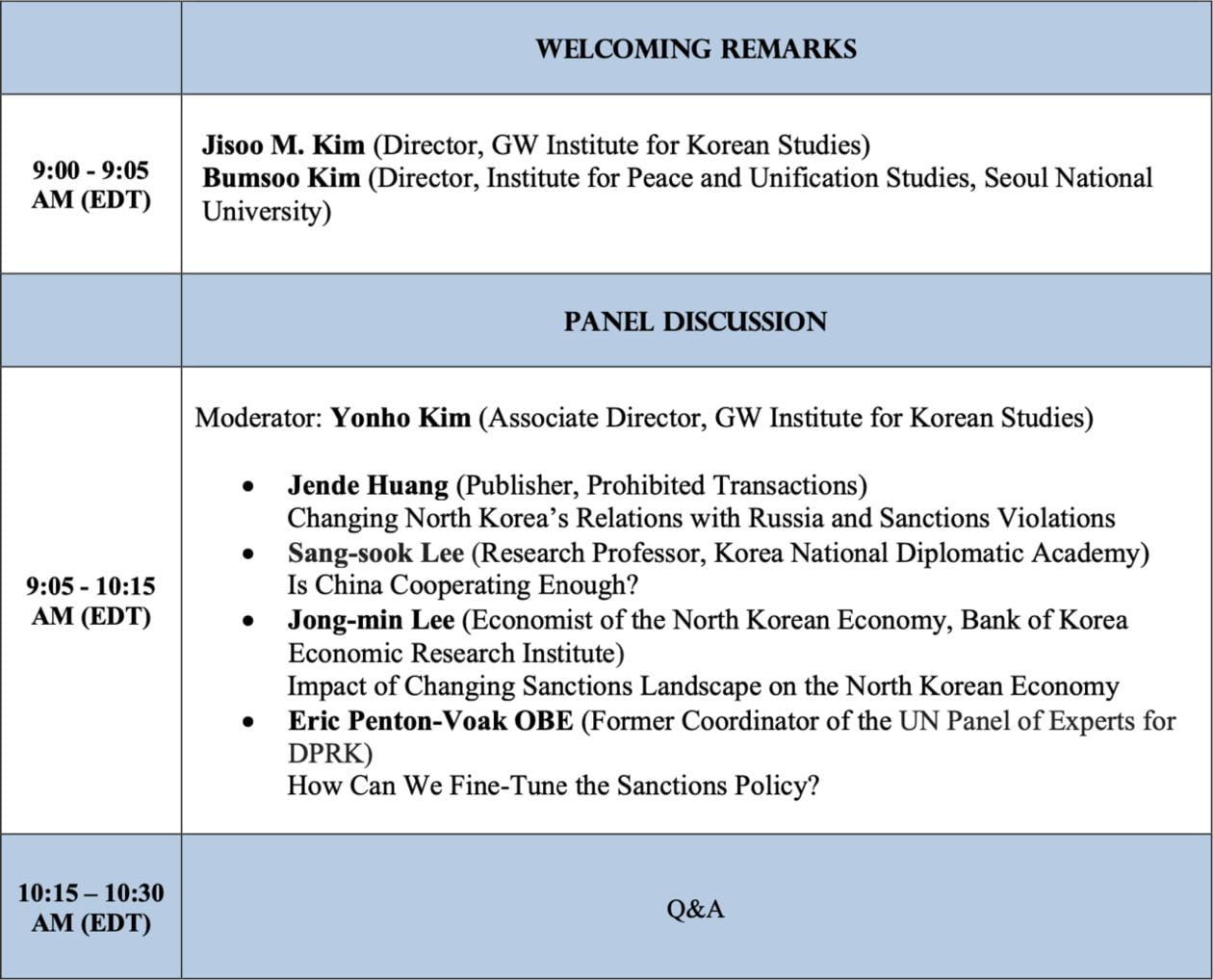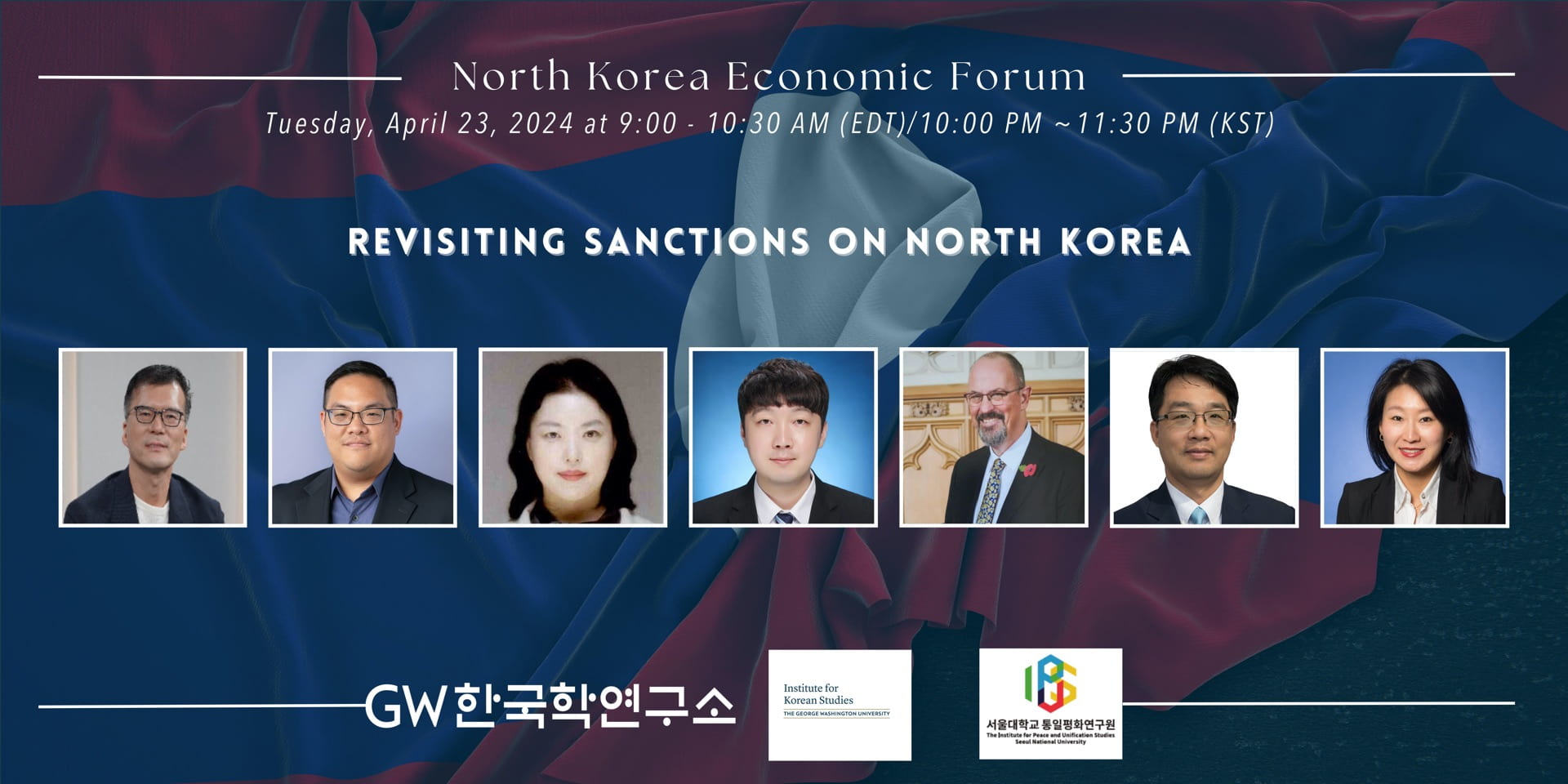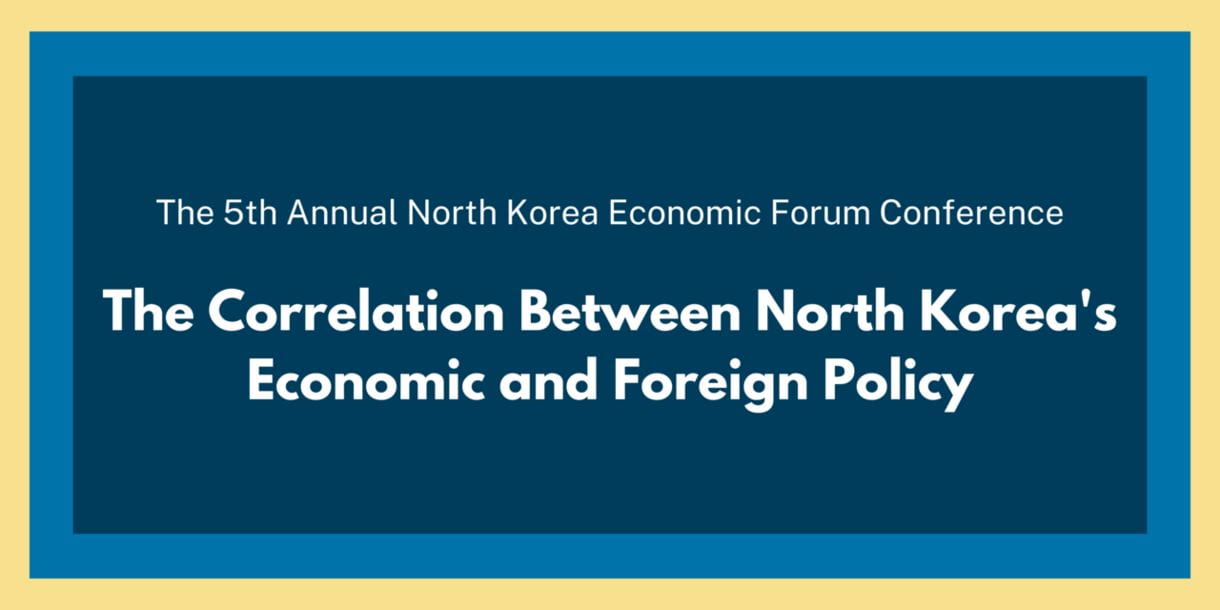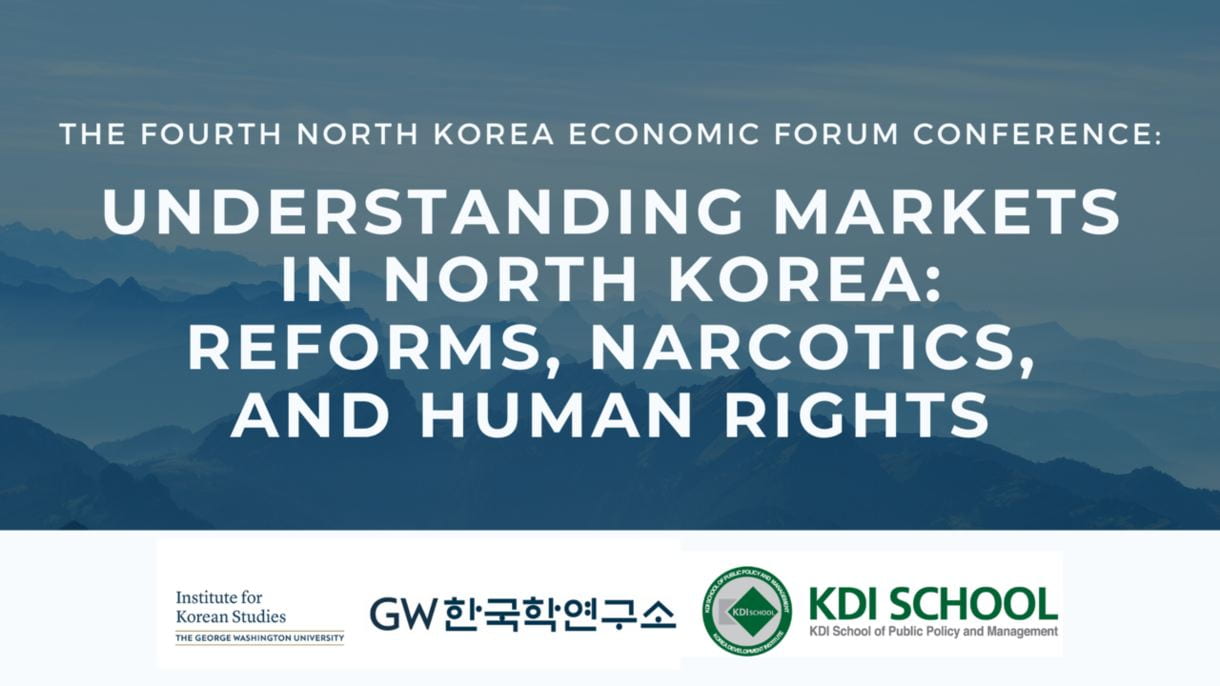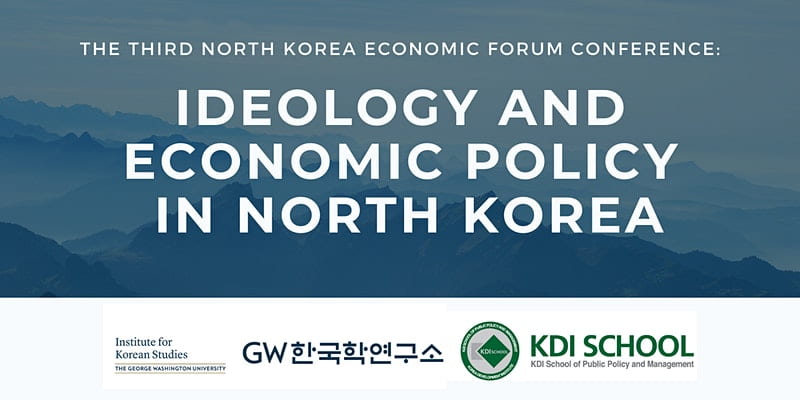On November 16th, 2020, the GW Institute for Korean Studies (GWIKS) hosted the North Korea Economic Forum Panel Discussion on “The Pandemic’s Impact on North Korea: Leadership Dynamics, Markets and Public Health.” Three experts from Korea and three experts the US joined to discuss the pandemic’s impact on North Korea’s domestic politics, public health and economics. Moderated by Celeste Arrington, Korea Foundation Associate Professor of Political Science and International Affairs at George Washington University, one professional from each Korea and the US touched on the three main topics: leadership dynamics, markets, and public health.
The discussion began with Mr. Ken Gause, Director of Adversary Analytics Program of CNA Corporation, sharing his analysis on Kim Jung-eun’s leadership and the pandemic’s impact on the political power dynamics. Kim’s leadership has been unique in style compared to his father, Kim Jung-il. The difference is visible within the inner power circle: he is more comfortable delegating authority, increasing role of women, and reviving former decision-making structures while keeping the final decision-making power to himself. Nevertheless, the admission of the failure of the five-year plan and apology for the shooting of the South Korean presents the difference in leadership style compared to his predecessors. Under the circumstances that we respect his standards, there is hope that Kim’s unique power calculus and leadership will provide more opportunities to engage with North Korea.
Adding on to Mr. Gause’s analysis, Dr. Eunjung Lim, Associate Professor of the International Studies Division at Kongju National University, talked the stability in Kim’s leadership. This year North Korea suffered the pandemic and a devastating typhoon in the summer. On a personal level, there were multiple conspiracies on Kim’s health, his sister, etc. Nevertheless, at the 75th Anniversary of ruling Worker’s Party celebration the spectacular parade showcased the pride of North Korea and their leader Kim Jung-eun. Ms. Lim argues that this proves the stability of Kim’s leadership. Moreover, his authority to implement loyalty cleanse and possession of nuclear power helps him maintain the stability in his leadership. Closing her talk, Dr. Lim mentioned that she hopes the Moon administration and the Korea’s president-elect in 2022 will be able to work with Washington in finding a strategy to build positive relationship with North Korea.
Shifting to the next topic, Dr. William Brown, Principal of the Northeast Asia Economics and Intelligence Advisory, began his presentation on North Korean economy. North Korea whether they have pandemic or not has been under great strain. In addition to Kim’s failure on the five year development plan, issues of weak labor production, trade, extreme monetary policy that negatively impacts the government, and the pandemic lockdown are no good to the North Korea’s economy. If, however, the government makes reforms and opens the markets, North Korea will be able to benefit from the mass engagement from foreign investors.
Dr. Eul-Chul Lim, Director of ICNK Center at the Institute for Far Eastern Studies at Kyungnam University, began his talk by providing four factors that he applies when analyzing North Korea’s economy: trade volume between China and North Korea, foreign exchange rate, price and inflation rate, and defector’s experience. Due to the pandemic the tourism industry and the manufacturing industry have been hit hard. Moreover, smuggling which has significant contribution on North Korea’s trade has also halted because of COVID-19. Ironically, the fx-rate and the price for food such as rice have not fluctuated in great amount due to active engagement of the government. In other words, North Korea’s economy is upholding its stability in certain fields be forcing downward stability in its market.
Dr. Jiho Cha, Senior Lecturer at the University of Manchester, then talked on how these political and economic impact of the pandemic has transformed North Korea’s public health sector. North Korea who does not have the best medical supplies, has been able to uphold its resiliency against the pandemic by declaring lock down and supporting the community doctors to take extensive measures on examine people its people. These measures, unfortunately, could also be a vulnerability to North Korea by stimulating informal health markets to expand, creating market instability, and destructing the food security.
Dr. Kee Park, Director of Korea Health Policy Project at the Harvard Medical School also agreed that we the pandemic and the lock down policies have created various issues on North Korea such as disruption on the supply chain for medical supplies and unequal access to medical service. Dr. Park claimed that this pandemic should role out a as an opportunity for reset in North Korean. This reset needs to be a comprehensive approach, including a sanction relief, stable multi-lateral approach, and unprecedented level of medical, political, and economic assistance will be required.
While the question of whether North Korea has COVID-19 cases or not remains unanswered, we can all agree that the pandemic has had massive influence North Korea. The US, China, and South Korea, each struggle with their own domestic issues, and yet, we should not give up on our hope in that the these countries and North Korea would engage in finding a common goal to resolve the prolonging issues that we have today.
